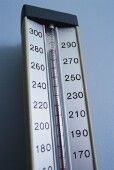More Data Needed on Blood Pressure in Children
Ambulatory, rather than clinic blood pressure, is a more accurate measure of changes in blood pressure throughout the day, and more data are needed on blood pressure changes in children and young people, according to an American Heart Association scientific statement published online Aug. 4 in Hypertension.

TUESDAY, Aug. 5 (HealthDay News) -- Ambulatory, rather than clinic blood pressure, is a more accurate measure of changes in blood pressure throughout the day, and more data are needed on blood pressure changes in children and young people, according to an American Heart Association scientific statement published online Aug. 4 in Hypertension.
Elaine Urbina, M.D., chair of the American Heart Association, and colleagues write that higher blood pressure levels in young people are associated with increased atherosclerosis and that target organ damage can only be prevented if there is accurate assessment of blood pressure.
Using ambulatory blood pressure monitoring is gaining wider acceptance for the treatment of both adults and children, as it can measure the effect of interventions, the authors note. However, it has yet to be successfully applied to any large-scale drug trials to treat children and it has so far been under-utilized as a tool to monitor and manage hypertensive children and young people, the statement indicates.
"There is a need for larger data sets, including normative data in healthy non-white populations," the authors write. "Information relating to ambulatory blood pressure monitoring to well-defined or intermediate end points in youth with sustained hypertension is also lacking. Additional data will also be important in evaluating the efficacy of ambulatory blood pressure monitoring in measuring effects of interventions and reversal of target organ damage."
Several of the authors report financial relationships with the pharmaceutical industry.
Copyright © 2008 ScoutNews, LLC. All rights reserved.